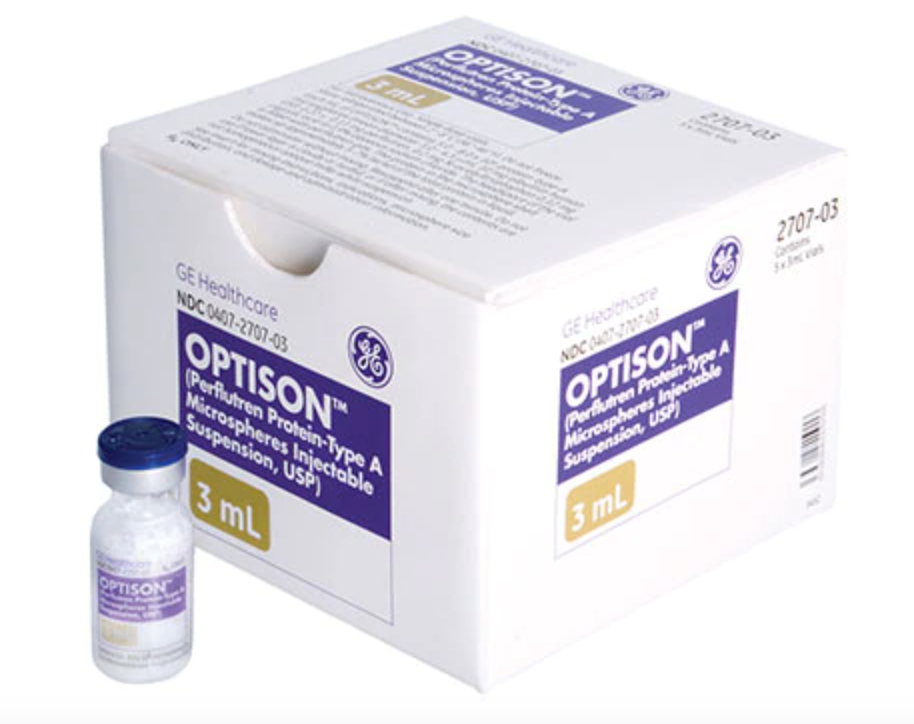FDA Approves Change in Contraindications in Prescribing Information for Optison from GE
 The US FDA has approved changes in contraindications in prescribing information for Optison, an ultrasound enhancing agent from GE Healthcare. The decision allows GE to remove hypersensitivity to ‘blood and blood products’ from the contraindications in its prescribing information for its product Optison; contraindications for known or suspected hypersensitivity to perflutren or albumin remain.
The US FDA has approved changes in contraindications in prescribing information for Optison, an ultrasound enhancing agent from GE Healthcare. The decision allows GE to remove hypersensitivity to ‘blood and blood products’ from the contraindications in its prescribing information for its product Optison; contraindications for known or suspected hypersensitivity to perflutren or albumin remain.
Optison improves the visualization of the left ventricular border ─ an area of the heart that is critical to see in order to help assess heart conditions. It is indicated for use in patients with suboptimal echocardiograms to opacify the left ventricle and to improve the delineation of the left ventricular endocardial borders.
Marco Campione, General Manager Americas for GE Healthcare, said: “More than three million patients have received Optison since it was approved by the FDA in 1997. During that time, there have been no reported cases of blood or blood product hypersensitivity reactions. No other albumin products on the market have this contraindication. We are pleased, therefore, that the FDA has made this decision.”
Jonathan R. Lindner, MD, M. Lowell Edwards Professor of Medicine, Chief, ONPRC Division of Cardiometabolic Health, Oregon Health & Science University, said: “Ultrasound enhancing agents (UEAs) have been shown to improve patient care through improved diagnostic accuracy and greater confidence in interpretation of echocardiograms. Accordingly, the peeling away of precautions or contraindications for the use of UEAs that are not supported by science removes unnecessary hurdles to employing this valuable asset in cardiovascular imaging.”
Removing the need to screen for hypersensitivity to blood and blood products will help to improve workflow efficiency for clinicians. As the FDA has never classified Optison as a blood product - it has always been classified as a medical imaging drug product - there continues to be no related religious-based objection, and no additional patient consent is required.
